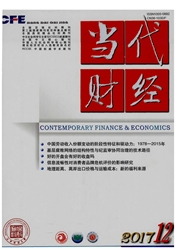

 中文摘要:
中文摘要:
基于VAR模型测度货币政策的有效性是常用研究范式,构建概率时变斜率系数、随机波动率以及扩展因子的VAR模型以考察中国数量型货币政策有效性的时变演化特征。实证结果发现:第一,货币供给增长的产出效应存在明显的时变性,在1999-2006年期间虽然不存在长期产出效应,但短期产出效应非常显著,而在2007-2013年期间短期产出效应却出现将近50%的下降,数量型货币政策的有效性呈逐渐减弱态势;第二,相比产出效应,数量型货币政策的价格效应更为显著、稳定和持久。
 英文摘要:
英文摘要:
To measure the effectiveness of monetary policy based on VAR model is a common research model. This paper constructs a factor-augmented VAR model with probable time-varying slope coefficients and stochastic volatility to examine the time-varying evolution characteristics of quantitative monetary policy effectiveness in China. The empirical results show that, firstly, the output effectiveness of money supply growth shows obvious time-varying characteristics, and there is no long-time output effectiveness but significant short-term output effectiveness during the period of 1999-2006; while the short-term output effectiveness declined about 50% during the period of 2007-2013, the effectiveness of quantitative monetary policy is gradually waning. Secondly, compared with the output effectiveness, the price effectiveness of quantitative monetary policy is more signifi- cant, stable and durable.
 同期刊论文项目
同期刊论文项目
 同项目期刊论文
同项目期刊论文
 期刊信息
期刊信息
